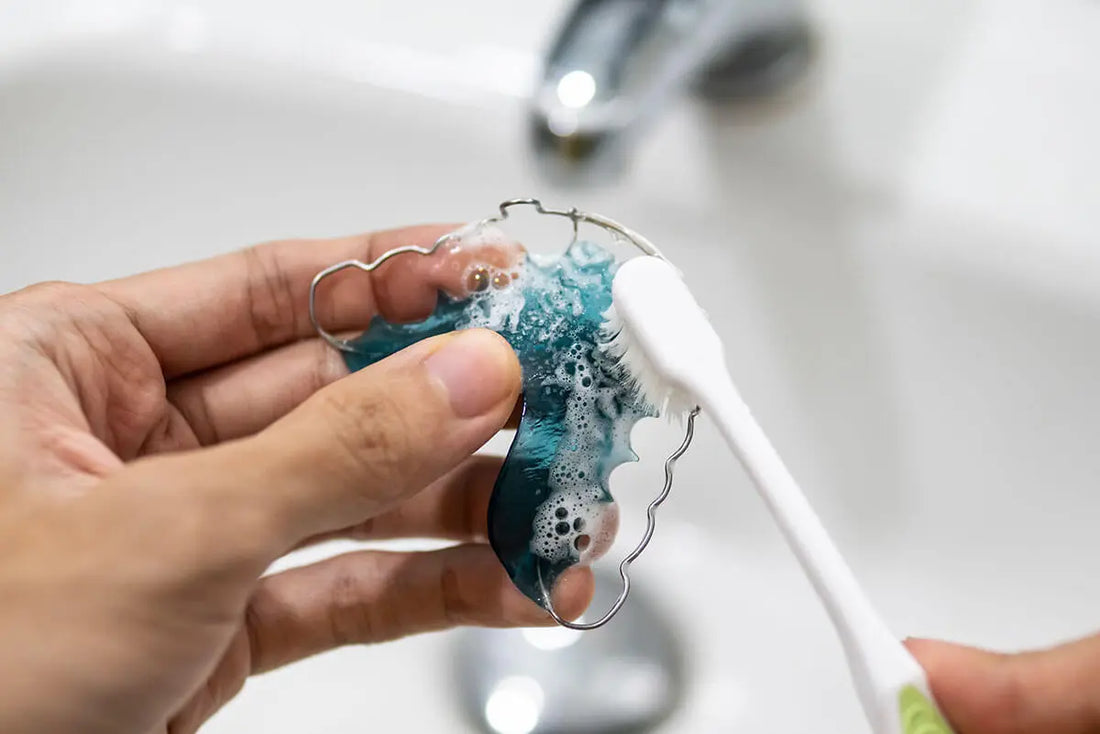
Night Guard Maintenance 101: Do Dentists Recommend Ultrasonic Cleaning?
Share
Night guards are a common oral appliance prescribed by dentists to address issues like teeth grinding and jaw clenching during sleep. These guards, also known as occlusal splints or bite splints, play a crucial role in protecting teeth and alleviating associated discomfort. Proper maintenance of night guards is essential for both their longevity and your oral health. In recent times, the use of ultrasonic cleaning for night guard maintenance has gained attention. This article aims to explore the fundamentals of night guard care, examine the pros and cons of ultrasonic cleaning, and answer the question: Do dentists recommend ultrasonic cleaning for night guards?
Understanding the Importance of Night Guard Maintenance
Night guards serve as a protective barrier between your upper and lower teeth, preventing them from grinding against each other. Without proper maintenance, night guards can become a breeding ground for bacteria, plaque, and odors. Routine cleaning not only ensures optimal oral hygiene but also contributes to the overall effectiveness of the night guard in safeguarding your teeth.
Night Guard Cleaning Basics
Before delving into the specifics of ultrasonic cleaning, it's crucial to grasp the fundamental practices of night guard maintenance recommended by dentists:
1. Daily Rinsing: After removing your night guard in the morning, rinse it thoroughly with lukewarm water. This helps remove saliva and oral debris, preventing the buildup of bacteria.
2. Gentle Brushing: Use a soft-bristled toothbrush to brush the night guard with a mild, non-abrasive soap or toothpaste. Avoid using toothpaste with harsh abrasives, as they can damage the material of the night guard.
3. Soaking: Dentists often recommend soaking the night guard in a specialized cleaning solution. This helps to eliminate bacteria and maintain the integrity of the appliance.
4. Regular Check-ups: Schedule regular dental check-ups to have your night guard inspected by a professional. Dentists can identify signs of wear and recommend adjustments or replacements as needed.
The Rise of Ultrasonic Cleaning
Ultrasonic cleaning has become increasingly popular for various dental appliances, including night guards. This method involves using high-frequency sound waves to create microscopic bubbles that implode, producing a cleaning action known as cavitation. But is ultrasonic cleaning the go-to recommendation for night guard maintenance?
The Pros of Ultrasonic Cleaning for Night Guards
1. Precision Cleaning: Ultrasonic cleaning reaches areas that may be challenging to clean manually. Night guards often have intricate surfaces that can harbor bacteria, and the precision of ultrasonic cleaning ensures a thorough removal of contaminants.
2. Time Efficiency: Ultrasonic cleaning is known for its efficiency, providing a quick and effective solution. This is particularly beneficial for individuals who seek a convenient way to clean their night guards without investing significant time.
3. Non-Abrasive Nature: Night guards are typically made from specialized materials that can be sensitive to abrasive cleaners. Ultrasonic cleaning, being non-abrasive, reduces the risk of damage to the night guard while ensuring a deep clean.
4. Deeper Cleaning: The cavitation process in ultrasonic cleaning goes beyond surface cleaning, reaching into crevices and tiny openings. This deep cleaning is crucial for night guards, which can accumulate debris in hard-to-reach areas.
The Cons of Ultrasonic Cleaning for Night Guards
1. Cost Considerations: Ultrasonic cleaners can be relatively expensive, and this initial investment might be a factor for some individuals. While they can be a valuable addition to your oral care routine, it's essential to weigh the cost against the benefits.
2. Maintenance of the Ultrasonic Cleaner: Owning an ultrasonic cleaner requires responsible maintenance. Regular cleaning and descaling are necessary to ensure optimal performance. Users need to follow the manufacturer's guidelines for proper usage and maintenance.
3. Noise Level: Ultrasonic cleaners can produce noise during operation. While this noise is temporary, it may be a consideration for those who are sensitive to sound or share living spaces where quiet is essential.
4. Limited Effect on Stains: Similar to other cleaning methods, ultrasonic cleaning may have limitations when it comes to addressing stains on night guards. Some stains may require additional steps or the use of specialized cleaning solutions.
Dentist's Perspective on Ultrasonic Cleaning
The question remains: Do dentists recommend ultrasonic cleaning for night guards? While opinions may vary, many dentists view ultrasonic cleaning as a beneficial adjunct to traditional cleaning methods. It can be particularly useful for patients who struggle with manual cleaning or have difficulty reaching certain areas of their night guards.
Tips for Effective Ultrasonic Cleaning of Night Guards
For those considering ultrasonic cleaning for their night guards, here are some practical tips for effective use:
1. Follow Manufacturer Guidelines: Adhere to the guidelines provided by the manufacturer of both the night guard and the ultrasonic cleaner. This ensures that you use the equipment correctly and avoid potential damage.
2. Use Compatible Cleaning Solutions: Choose a cleaning solution compatible with both the night guard material and the ultrasonic cleaner. Consult with your dentist if you are unsure about the suitability of a particular solution.
3. Regular Maintenance: Keep the ultrasonic cleaner in good condition by regularly cleaning and descaling it according to the manufacturer's instructions. A well-maintained cleaner ensures optimal performance.
4. Combine Methods for Optimal Results: While ultrasonic cleaning can be effective, consider combining it with manual cleaning methods. This comprehensive approach ensures that all aspects of night guard maintenance are covered.
Conclusion
Night guard maintenance is a vital aspect of oral care for individuals dealing with teeth grinding and jaw clenching. While ultrasonic cleaning offers precision, efficiency, and a deep cleaning effect, it's essential to weigh the pros and cons against your individual needs and preferences. Consulting with your dentist can provide personalized guidance on the most effective night guard maintenance routine for you.
In the dynamic world of oral care, finding the right balance between convenience and effectiveness ensures that your night guard not only protects your teeth but also contributes to your overall oral health. Whether you opt for ultrasonic cleaning or traditional methods, the key is to stay committed to a regular and thorough night guard maintenance routine. Your smile and oral well-being deserve the best care possible.
